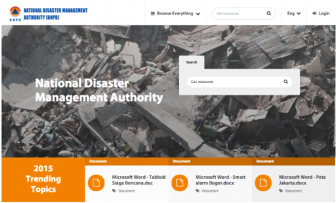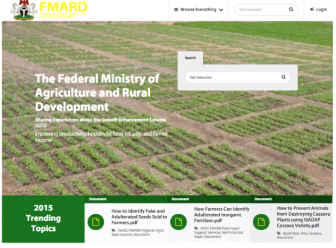 The World Bank wanted to develop a new workshop helping their mission clients understand Knowledge Management Systems value and functionality; EK partnered with the World Bank to customize and deliver this training around the world. As a result, the World Bank now possesses an interactive workshop and requirements gathering methodology, as well as a framework KMS that can be easily replicated and customized for each new mission and need.
The World Bank wanted to develop a new workshop helping their mission clients understand Knowledge Management Systems value and functionality; EK partnered with the World Bank to customize and deliver this training around the world. As a result, the World Bank now possesses an interactive workshop and requirements gathering methodology, as well as a framework KMS that can be easily replicated and customized for each new mission and need.
The Challenge
The Knowledge Sharing work program team at the World Bank is uniquely dedicated to Capacity Development around the world, providing practical trainings and workshops on a range of Knowledge and Information Management concepts and capabilities.
In order to extend their capabilities, the World Bank wanted to develop a new workshop helping their mission clients understand Knowledge Management Systems (KMS) value and functionality. Moreover, World Bank sought a Prototype KMS that could be easily customized and applied to a diverse set of mission clients and topics around the world.
The Solution
Enterprise Knowledge (EK) engaged with World Bank to understand the types of participants for KMS Workshops and clearly define the anticipated outcomes for the workshop. Working iteratively with the World Bank, EK developed a two-day agenda of workshop and training materials, focused on highly interactive exercises to engage workshop participants and elicit each client’s core needs and potential KMS requirements.
Over the course of several months, EK partnered with the World Bank to customize and deliver this training around the world, including locations in Nigeria, Colombia, Uganda, Indonesia, and India. In each case, we evolved the workshop materials, learning from the delivery, in order to make them more interactive and results-oriented.
EK concurrently worked with World Bank to develop a complete set of requirements for the KMS Prototype. We leveraged the workshops to understand organizational drivers and to develop and prioritize functional requirements for an iterative development roadmap.
EK recommended Alfresco and Solr as the supporting technology set in order to maximize functionality while minimizing potential administrative burden and license costs for World Bank and their assorted mission clients. We leveraged Agile to design and develop the solution to be fully customized for each mission client, while also easily replicated for future needs and user groups.
The KMS Prototype includes an array of focused knowledge and information management functionality, including content sharing/publishing, expertise profiles and search, and faceted navigation.


The EK Difference
EK supported World Bank from the initial conception of the workshop through the delivery of the proven KMS prototype, applied and customized for an array of World Bank missions. This approach maximized our engagement with the true end users of these systems, allowing us to work “in the field” with organizational stakeholders to ensure we understood their needs and were designing something specifically for them.
Using an Agile Design and Development approach, initial delivery of a working product spanned weeks, instead of month or years. Leveraging this approach, end user organizations received a highly customized KMS in an abbreviated period, allowing them to begin capturing, managing, and sharing their knowledge right away.
The KMS itself was designed with flexibility and sustainability in mind. Leveraging an Open Source technology stack, EK developed a solution that offers a wide array of knowledge and information functionality that allows users to:
- Publish information to the site, supported by workflow that ensures accurate tagging and security;
- Quickly and intuitively search and/or browse for the information they’re seeking; and
- Find and connect with experts in the system, based on their profile, the information they’ve shared, and the ways they’ve interacted with the site.
The Results
As a result of EK’s efforts and solution, the World Bank possesses an interactive workshop and requirements gathering methodology, as well as a framework KMS that can be easily replicated and customized for each new mission and need.
The benefits of these efforts are already visible around the world, with World Bank mission partners capturing their knowledge, sharing that information, and enhancing it over time in order to better serve their constituents and achieve their organizational goals.
